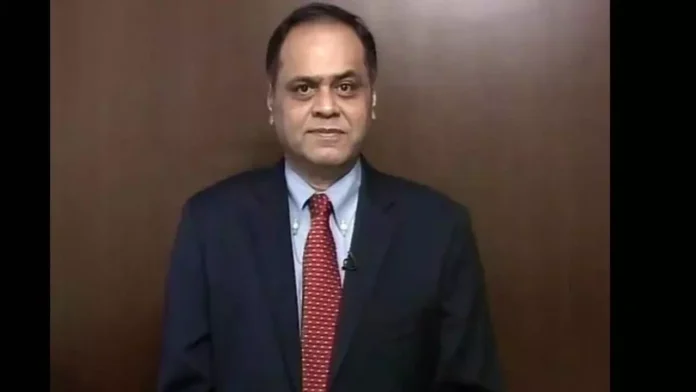In a detailed analysis following Donald Trump‘s return to the political spotlight, veteran investor Ramesh Damani cautioned that the current market euphoria could be short-lived. Speaking about the surge in optimism that has followed Trump’s victory, Damani noted that while markets are enjoying a temporary boost, a harsh reality may soon follow. The seasoned market watcher believes that the initial enthusiasm could fade as new economic policies and trade decisions begin to take shape under the Trump administration.

A Temporary Market Boost Amid Trump’s Win
Damani’s remarks came during a discussion on the financial markets‘ response to the news of Trump’s comeback. According to him, the post-victory period has sparked a brief ‘honeymoon’ phase in the markets, characterized by investor optimism and a surge in market indices. This phase, he suggested, might last for a few days as markets digest the political shift and its potential impact on economic policies.
However, Damani warned that this buoyant sentiment might not hold up in the long term. He emphasized that while the immediate response has been positive, the underlying economic challenges could become apparent soon after. This, he believes, could lead to a more sober assessment of the market’s future trajectory, with investors needing to brace for policy shifts that might impact both the U.S. and international markets.
Indian Exports May Face New Tariffs Under Trump’s Policies
One of the key concerns highlighted by Damani is the potential impact of Trump’s administration on Indian exports. He pointed out that during Trump’s previous tenure, there was a marked emphasis on protectionist trade policies, which included imposing tariffs on various imported goods. Damani suggested that a similar stance could be expected in Trump’s renewed leadership, which may have significant implications for Indian exporters.
“Indian goods could face tariffs under the Trump administration,” he said, pointing out that protectionist measures could make it more difficult for Indian products to remain competitive in the U.S. market. According to Damani, this could result in increased costs for exporters and potentially reduce the market share of Indian goods in the United States.

A Shift in Global Trade Dynamics
The investor also touched on how Trump’s victory might reshape global trade relations, not just for India but for other major trading partners of the United States. During his previous time in office, Trump made headlines for revisiting trade agreements, renegotiating terms, and pushing for tariffs on imports from countries like China, Canada, and Mexico. Damani speculated that similar strategies might be adopted again, leading to shifts in global trade dynamics and requiring businesses to adapt to new market conditions.
He also highlighted the possibility of a more inward-looking economic strategy under Trump’s leadership, which could affect international businesses and investments. According to Damani, companies that are heavily reliant on the U.S. market for revenue might need to reconsider their strategies and prepare for possible barriers to entry.
Stock Market Volatility Expected After Initial Euphoria
Damani emphasized that while the initial boost might be a relief for investors, the markets could soon experience volatility. “A hard reality check will be needed after this honeymoon period,” he noted, referring to the adjustments that markets may face as the new administration’s policies become clearer. He advised investors to remain cautious and keep an eye on economic indicators and policy announcements that could shape the market’s future performance.
This perspective aligns with the broader market sentiment, where analysts have pointed out that political changes often bring a mix of optimism and uncertainty. While some sectors might benefit from the new policy directions, others could face challenges, especially those impacted by changes in trade policies or tariffs.
Post-Victory Implications for U.S.-India Relations
Damani also touched upon the implications of Trump’s win for U.S.-India relations, a key area of interest for the business community. During his previous tenure, Trump developed a strong rapport with Indian leadership, but his trade policies often raised concerns among Indian exporters. Damani suggested that while diplomatic ties might remain cordial, the economic aspect of the relationship could see some friction if tariffs are reintroduced.
“After this extraordinary comeback, everyone will bow to his wishes, including a Republican Congress,” Damani remarked, alluding to the level of control Trump might exert in shaping policy decisions. With a supportive Congress, Trump’s administration could push through policy changes with fewer hurdles, potentially leading to swift shifts in trade and economic policies.
What It Means for Indian Investors and Businesses?
For Indian businesses, Damani’s analysis serves as a reminder to remain vigilant. With the potential for new tariffs and trade policies, companies engaged in exporting goods to the U.S. may need to reassess their strategies. The focus may shift towards exploring new markets or investing in product innovation to maintain a competitive edge despite possible import duties.
Investors, on the other hand, might need to prepare for a period of heightened market fluctuations. Damani’s insights suggest that while the immediate market response has been positive, the path ahead could be marked by uncertainty. It could become crucial for investors to focus on a balanced portfolio and look for opportunities in sectors less impacted by trade policies.

Conclusion: A Watchful Eye on Market Developments
As markets continue to react to Trump’s victory, Ramesh Damani’s perspective provides a grounded view of what might lie ahead. While the market’s initial response has been one of optimism, the challenges posed by new trade policies and tariffs could bring a shift in sentiment. For Indian exporters and investors, the next few weeks will be critical as they await clarity on how the Trump administration plans to shape its economic agenda.
With potential tariffs looming, Indian businesses will need to adapt quickly to remain competitive in the global market, while investors may need to brace themselves for both opportunities and challenges in the evolving landscape.

